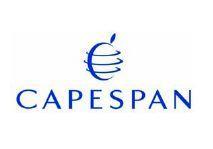
The Capespan Group has announced that it achieved strong results in 2011, despite the turmoil in the global markets as a result of geopolitical uprisings and continued global economic pressure.
Revenue at the South African company grew by only 2.9 per cent, but net profit increased by 28.7 per cent to R139.5m (€13.3m). Revenue growth, to R2.76bn (€264m), is in line with the weighted average depreciation of the rand during 2011, Capespan said.
The company's Farming Division increased its revenue because of better prices for table grapes, as well as the inclusion of the division’s results as a subsidiary for the full year.
Volumes of produce handled by Capespan's Fruit Division declined as a result of climatic conditions and the resultant seasonal reduction in volumes, the group noted, and because of a focus on improving margins. It appeared that this focus paid off, because the Fruit Division's revenues increased by 2 per cent despite the lower volumes.
According to the financial statement, the Capespan Group's Logistics Division had a tougher time last year. With the total volume of fruit exported from South Africa during 2011 dropping by 7 per cent, it impacted on the companies in the Logistics Division, with revenue declining by 13.6 per cent. The continued increase in the use of containers, a mode of shipping in which the Capespan Logistics Division only partially participates, also contributed to the decline.
Capespan said that during the year it disposed of certain non-core assets, and this generated of R36.1m (€3.4m). The statement did not elaborate on which non-core assets had been sold, but noted that the group sold a 26 per cent stake in its port operations, Fresh Produce Terminals, to Thembeka Capital in a black empowerment deal.
The performance of Capespan's associated companies improved significantly during the year, partly due to a strong turnaround in the UK operations. 'The acquisition of a 25 per cent stake in Golden Wing Mau in China was concluded, which also made a positive contribution to the performance of the Group,' Capespan outlined.
Better exchange rates contributed a great deal to the Capespan performance last year, with the group's working capital increasing by R148.7m (€14.2m), mainly as a result of the significant devaluation of the South African currency during 2011. Reserves reflected an equivalent increase as a result of the retained earnings and currency translation gains. Compared with the previous year, the South African rand showed an annual drop of 22.8 per cent against the US dollar, 22.55 per cent against the British pound, 28.9 per cent against the Japanese yen and 22.9 per cent against the Hong-Kong dollar.
The final dividend which will be paid in June represents a dividend yield of 3.8 per cent based on the year-end share price of 240 cents per share, Capespan revealed.



